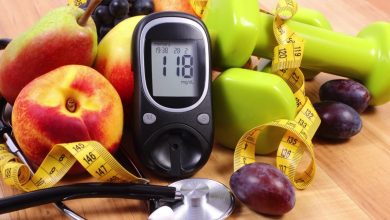Humans age dramatically at two key points in their life, study finds

CNN — Researchers have discovered that humans age at the molecular level in two faster bursts, one around age 44 and the other at age 60.
Scientists from Stanford University and Nanyang Technological University in Singapore tracked 108 people for several years to look for ageing changes in their molecules, including RNA, proteins, and microbiomes, in a study that was published in the journal Nature Ageing.
The researchers discovered that ageing in humans is not a linear, gradual process. Instead, at 44 and 60 years old, most of the molecules they examined displayed rapid, non-linear alterations.
The study’s first author, Xiaotao Shen, an assistant professor of microbial medicine at Nanyang Technological University, told CNN that the findings demonstrate that “we are not becoming old gradually.” He went on to say that certain moments in time are very crucial to our ageing and health.
For instance, the body’s capacity to metabolise caffeine significantly declines, first around 40 and then again around 60. The two waves of ageing are represented by the decline in components involved in metabolising alcohol, which is especially noticeable around the age of 40, according to Michael Snyder, chair of Stanford’s genetics department and study author, who spoke with CNN.
“People often get muscle injuries and see their fat accumulation hit in their 40s (related to lipid metabolism), and definitely sarcopenia (muscle loss) hit people in their 60s — this is a very big deal,” Snyder continued with anecdotal evidence.
The proteins that hold tissues together changed in both age groups, he continued, which probably contributes to the alterations in the skin, muscles, and cardiovascular system.
Additionally, the risk of disease increases more quickly, especially after 60. According to the study, those 60 years of age and above have an increased risk of type 2 diabetes, kidney problems, and cardiovascular diseases.
As per the study, identifying patterns such as these can aid in the diagnosis and prevention of diseases. It further claimed to have discovered “clinically actionable markers” that can be employed to enhance health-care administration and the welfare of elderly people.
Participants in the study ranged in age from 25 to 75 for an average of about two years. Every participant was healthy, from a variety of ethnic origins, and resided in California. Every three to six months, samples of their blood, faeces, skin, and nasal and mouth swabs were collected.
The menopause, which usually occurs between the ages of 45 and 55, may have contributed to women’s faster ageing, therefore the researchers ran their analysis on datasets that were specific to men and women. They were surprised to see that the results were identical, indicating that there may be a changeover point around 55 for both sexes.
Due to the small age range of the trial group, Shen said CNN, the most recent research was unable to corroborate the findings of a prior study conducted by researchers in Germany and the United States, which had discovered that there is another “wave” of ageing around the age of 75.
When approaching these critical years in your 40s and 60s, the researchers suggest changing your lifestyle by doing things like consuming less alcohol and exercising more.
When entering their sixties, Snyder recommended patients to limit their intake of carbohydrates and to stay hydrated to support kidney function.
“At certain times in your life, give yourself more attention,” Shen suggested.




